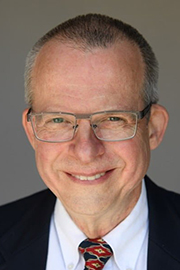SUBSTANCE ABUSE TREATMENT FOR ACTIVE-DUTY MILITARY
IN TACOMA, WASHINGTON
An accredited alcohol rehab program designed to achieve lasting sobriety
"*" indicates required fields
Build healthy coping skills and learn
how to avoid relapse with the help of treatment

A Substance Abuse
Treatment Center with Individualized Program
There’s no one-size-fits-all solution to addiction treatment. Every individual in our care has a unique story to tell, and our treatment plans are individualized to help them reach their goals. When you come to us for substance abuse treatment, you’ll find the targeted support you need.
We are in-network with TriCare as part of our commitment to making substance abuse treatment for active-duty military more affordable.

Program
Summary
A substance abuse treatment center for active-duty military should provide a program that does more than just address the addiction. It must also take into account an individual’s medical needs, living situation, and any co-occurring mental health conditions that may be underlying factors in their substance use issues.
Benefits of
Substance Abuse Treatment for Active-Duty Military

- Help for co-occurring mental health conditions
- A supportive environment to promote healing
- Medication-assisted treatment when appropriate
- A network of support to provide accountability
- The ability to focus solely on recovery
- Treatment from a full medical team
Treatment Phases
Research indicates that those who complete detox and rehab together are more likely to stay sober longer and less likely to relapse. An aftercare plan is essential for when you return home from rehab and face triggers in your everyday life.
Medication-Assisted Treatment
– Cleanse –
Withdrawal symptoms can be painful and uncomfortable. Having the support of a medical team and receiving counseling during this time can help you build a foundation for recovery.
Rehab
– Treatment –
Once withdrawal symptoms have faded, it’s time to work through the underlying causes of addiction in therapy and counseling. You’ll build healthy coping skills and discover a new path forward.
Aftercare
– Empowerment –
Ongoing support can help you thrive as you transition back to your daily life. You’ll stay connected with our treatment team as you rediscover life in recovery.
Discover how a substance abuse treatment center for active-duty military can help you or a loved one today.
Our Approach to Substance Abuse Treatment
A range of therapies and services can help address the physical and mental effects of addiction:

- Dual diagnosis treatment program for individuals struggling with addiction and co-occurring mental health concerns like depression, anxiety, or PTSD
- Cognitive-behavioral therapy (CBT)
- Dialectical behavior therapy (DBT)
- Medication-assisted treatment (MAT)
- Trauma therapy
- Psychotherapy
- Life skills therapy
- Family therapy
- Group therapy
Paying for Substance Abuse Treatment
How much does treatment cost?
The cost of substance abuse treatment for active-duty military should never be a roadblock to recovery. At Bayview Recovery, we design personalized treatment plans that address the needs of every individual in our care, and the cost of treatment can vary. However, we work with most major health plans—including TriCare—to reduce out-of-pocket costs and make treatment as accessible as possible. Verify your insurance today to see if your provider will cover your treatment.
“The staff at the center has been remarkable in their care for our loved one. Tuni was with us the whole way as we tried to get this person into treatment. They continue to assist us as the process continues. Great work!”
Ray O
“I have been trying to get sober the past 3 years and I have been to treatment 5 times. Bayview Recovery was my 6th time. They helped me get to 142 days sober! I was a handful hot mess when I got there but the team never gave up on me. They work with families and they truly care about them too. Bayview house’s are clean and comfortable and the staff is amazing. They plan for fun events weekly and they want you to have fun. If your looking for something different call them it will save your LIFE!”
Cindy J
“Bayview is dedicated to providing clients the healthiest environment to develop a solid foundation in their recovery. The therapists and medical team are devoted to ensure clients have the best individualized care. I highly recommend Bayview for anyone seeking a highly professional treatment program. The care and compassion given to clients is remarkable.”
Robin M
“This is a fantastic facility with outstanding staff. If you or a loved one is struggling this is a great program to start the journey of recovery and get life long skills and relationships to begin a new life!”
Garrett T
“Just picked up our daughter after 90 days at Bayview Recovery. Loved the staff and facility, do not know what the future holds ???????? but while at Bayview , always felt informed. Highly recommend, incredibly helpful especially at the very beginning when we were so helpless and needed help the most – God Bless.”
Rosie S
Start Your Recovery
Taking the first step is half the battle. Choose how you want to get in contact with us to start the recovery process. You can reach us by phone or message.

Dr. David Cundiff
Medical Director (MD)
Dave Cundiff, MD, MPH is an experienced leader in the field of Substance Use Disorder treatment. He works with patients suffering from Substance Use Disorder to evaluate their medication needs and prescribe treatments accordingly. In addition, he regularly participates in all-staff debriefing sessions involving peers, nurses, and other prescribers. He also reviews and advises on policies, procedures, and techniques for treating substance use disorder.


